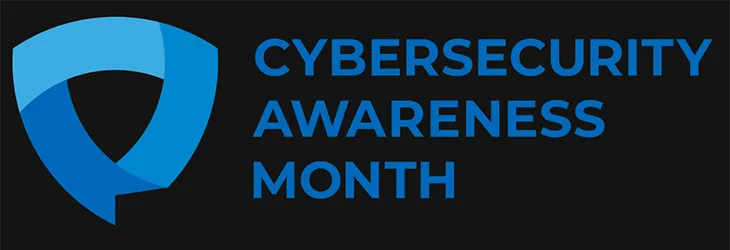As we embark on National Cyber Security Awareness Month 2023, Pisys invites you to delve into the world of phishing. Learn why phishing attacks now occur every 39 seconds, costing businesses millions, and explore various types of phishing threats. Discover our FREE staff training and robust security solutions, to fortify your defenses against this relentless menace.

Pisys Empowers Your Defense: FREE Phishing Training, Advanced Solutions and More…
As National Cyber Security Awareness Month 2023 begins, it’s vital to grasp the seriousness of phishing attacks, occurring every 39 seconds and costing businesses millions. Phishing, a deceptive cyber-attack method, targets individuals via emails, texts, or calls to steal sensitive data.
There are various phishing types:
Spear Phishing: Personalised attacks with detailed information.
Email Phishing: Broad attempts, often urgent.
Business Email Compromise (BEC): Impersonating executives.
Whaling: Targeting high-ranking execs.
Smishing: Text-based attacks.
Vishing: Phone scams.
Identifying phishing is harder as scammers use trusted branding. Look for suspicious links, requests for sensitive data, unusual sender details, generic salutations, urgency, and errors.
In today’s dynamic cyber landscape, a staggering revelation underscores the urgency of vigilance – 60% of phishing sites vanish in 10 minutes, emphasising the relentless nature of cyber threats. Phishing sites lure victims into revealing data or downloading malware, orchestrated by cybercriminals who rapidly take them down to evade detection.
To avoid phishing scams, follow these three simple tips:
Recognise Common Signs:
- Beware of urgent or emotionally manipulative language.
- Be cautious of requests for personal or financial information.
- Avoid unexpected attachments and untrusted shortened URLs.
- Verify that email addresses match the supposed sender.
- Be alert to poor writing or misspellings, although less common.
Resist and Report:
Use the “report spam” feature to report suspicious messages.
If a message impersonates a trusted organisation, report it using the organisation’s official contact information from their website.
Delete:
- Delete suspicious messages without replying or clicking on any links or attachments.
- Do not use the “unsubscribe” link as it may also be used for phishing.
- If unsure, seek alternative ways to contact the company or individual, such as visiting their website or calling a known number to confirm the message’s authenticity.
Cyber Security Awareness for IT Managers:
As guardians of organisational cybersecurity, IT Managers play a pivotal role in safeguarding against phishing threats. Here’s a checklist:
- Deploy Pisys eCampus for comprehensive staff training on phishing threats.
- Conduct simulated phishing tests to assess and enhance your team’s readiness.
- Implement Multi-Factor Authentication (MFA) to add an extra layer of security to email accounts and sensitive systems.
- Advance email security with advanced email filtering solutions to proactively block known phishing emails, reducing your exposure.
- Explore your options for comprehensive backup, patching, monitoring, and scanning.
- Leverage data from the help desk and vendors for meticulous audits and improvements.
- Schedule a comprehensive site survey with Pisys to pinpoint vulnerabilities and bolster defenses.
- Collaborate with us to craft and enforce a robust anti-phishing policy.
Free Cyber Security Training: Pisys eCampus
As part of our commitment to fortify your defenses, Pisys eCampus offers FREE Cyber Security training. Equip your staff with the knowledge and skills needed to combat cyber threats effectively. Contact your Account Manager or book an appointment by calling 01792 464748.
